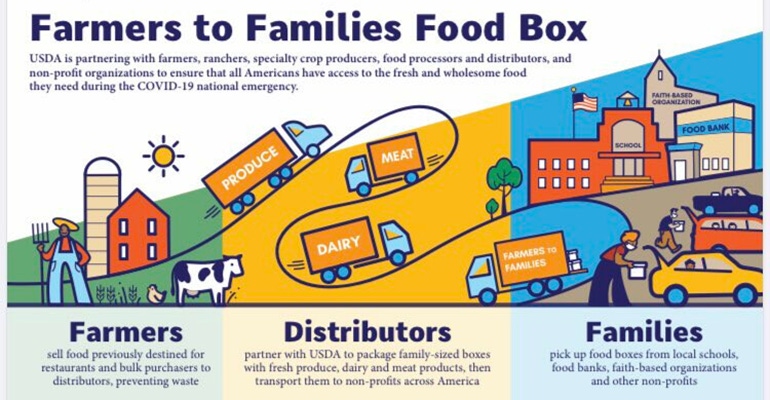Each day at 5 p.m. we collect the five top food and supplement headlines of the day, making it easy for you to catch up on today's most important natural products industry news.
September 4, 2020

New public records reveal COVID-19 hunger relief contractors get handsome payouts for mediocre food boxes
USDA contracted over 200 private-sector companies to pre-assemble fresh food boxes for hunger relief organizations, but the Farmers to Families Food Box Program has largely failed to meet its core goals. Activists are criticizing the Trump administration for overpaying contractors for the boxes and squandering much of the program's $3 billion in funding, as well as adding to the already strenuous burden on America's food banks. Read more at The Counter…
Planterra defends Beyond Meat, Impossible Foods after Lightlife's open letter
After Lightlife CEO Dan Curtin dismissed "food tech" companies like Beyond Meat and Impossible Foods for their "hyper-processed" nature (among other things), Planterra CEO Darcey Macken penned an open letter thanking such brands for shining a light on the plant-based meat industry and driving innovation. Beyond Meat and Impossible Foods' own responses called out Curtin's statements as deceptive and misleading. Read more at Veg News…
Tyson Foods to open health clinics near 7 plants
Tyson Foods reported that it will open health clinics close to seven of its meat plants to ostensibly "boost the overall health and wellness" of its employees. The clinics are scheduled to open next year and aim to serve 38,000 workers and their families. This announcement comes after widespread criticism that Tyson was failing to protect its plant employees from the spread of COVID-19. Read more at Tyson Foods…
New support for refugee farmers hard hit by the pandemic
Several organizations around the country are helping America's refugee farmers, who have lost the vast majority of their revenue this year due to COVID-19, find alternative business models to support them through the pandemic. One of these, New Roots for Refugees, is helping these farmers pivot through its CSA program. Read more at Civil Eats…
America at hunger's edge
An increasing amount of Americans are struggling to feed their families, and they are turning to cheap and often ultra-processed food as a result. These photos underscore the plight of U.S. food insecurity and the health problems in largely BIPOC communities that are likely to follow. Read more at The New York Times…
You May Also Like


